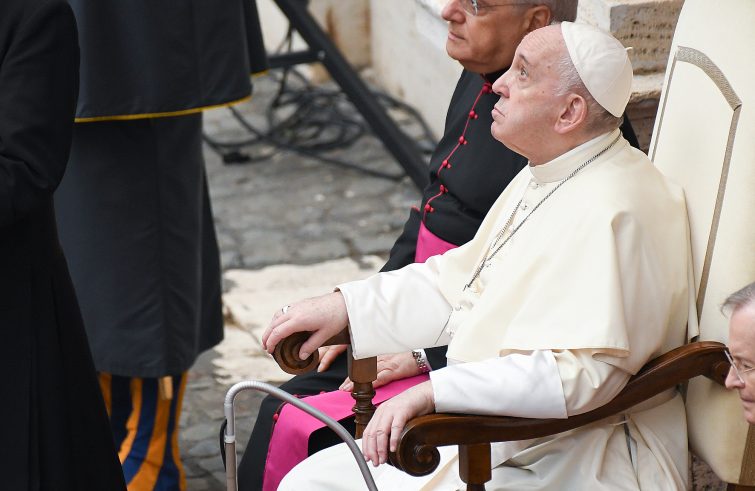
“The malaise was already there: the pandemic highlighted it more”: we must find the cure not only for the coronavirus but also “for the great human and socio-economic viruses”, said the Pope in the catechesis of today’s general audience held in the Saint Damasus Courtyard, attended by 500 people. The Holy Father asked not to return to “normality” that was already “ailing” but to undertake “another course.” “In the midst of the pandemic that afflicts us, we have anchored ourselves to the principles of the social doctrine of the Church”, Francis said, retracing the cycle of catecheses on recovery from “social diseases”, begun past August. “We have walked the paths of dignity, solidarity and subsidiarity, paths that are essential to promote human dignity and the common good. And as disciples of Jesus, we have proposed to follow in His steps, opting for the poor, rethinking the use of material goods and taking care of our common home.” “I hope this journey will not come to an end with this catechesis of mine, but rather that we may be able to continue to walk together, with our eyes fixed on Jesus, who saves and heals the world”, the message under the banner of “tenderness”, a virtue often recurring in the cycle of catechesis, which entails “giving thanks for the intimate bonds in our universal communion with all people and all creatures.”
“Regenerate society and do not return to so-called “normality”, which is an ailing normality,
ailing before the pandemic: the pandemic highlighted it!”, the Pope said. “That normality was sick with injustice, inequality and environmental degradation.” In the “normality” of the Kingdom of God, nobody turns a blind eye, “there is bread for all and more to spare, social organisation is based on contributing, sharing and distributing, not on possessing, excluding and accumulating.” Francis then made a gesture with his hand that from the heart is extended to the neighbour and then his hand withdrawn to exemplify selfishness or the anxiety of ownership. Only the first is a Christian gesture, but it cannot be made mechanically:
“We will never be able to emerge from the crisis that has been highlighted by the pandemic, mechanically,
with new tools”- these are “very important”, the Pope pointed out referring to A.I., but even the most sophisticated means are incapable of tenderness.
Covid 19 is “a small virus”, which continues to cause deep wounds and to expose our physical, social and spiritual vulnerabilities”: “It has laid bare the great inequality that reigns in the world: inequality of opportunity, inequality of goods, inequality of access to health care, inequality of technology, education: millions of children cannot go to school, and so the list goes on.” “These injustices are neither natural nor inevitable” – Francis remarked – “they are the work of man, they come from a model of growth detached from the deepest values.” That’s why, to overcome the pandemic,
“we must find the cure not only for the coronavirus – which is important! – but also for the great human and socio-economic viruses.”
“certainly we cannot expect the economic model that underlies unfair and unsustainable development to solve our problems. It has not and will not, because it cannot do so, even though some false prophets continue to promise the ‘trickle-down’ that never comes.” At the end of the audience, the Pope continued with unprepared remarks mentioning what he describes as “the theory of the glass”, namely: “it is important that the glass is full, and then overflows to the poor and to others, and they receive wealth.” “But there is a phenomenon”, Francis went on contesting this theory: “the glass starts to fill up and when it is almost full it grows, it grows and it grows, and never overflows.” “We need to set to work urgently to generate good policies, to design systems of social organisation that reward participation, care and generosity, rather than indifference, exploitation and particular interests.”
“We must go ahead with tenderness”,
the Pope added impromptu. “A fair and equitable society is a healthier society. A participatory society – where the ‘last’ are taken into account just like the ‘first’ – strengthens communion. A society where diversity is respected is much more resistant to any kind of virus.” “May God grant us to “viralize” love and to “globalize” hope in the light of faith”, is the final wish. “The Kingdom of God”, the Pope concluded, “is a Kingdom of light in the midst of darkness, of justice in the midst of so many outrages, of joy in the midst of so much pain.”











